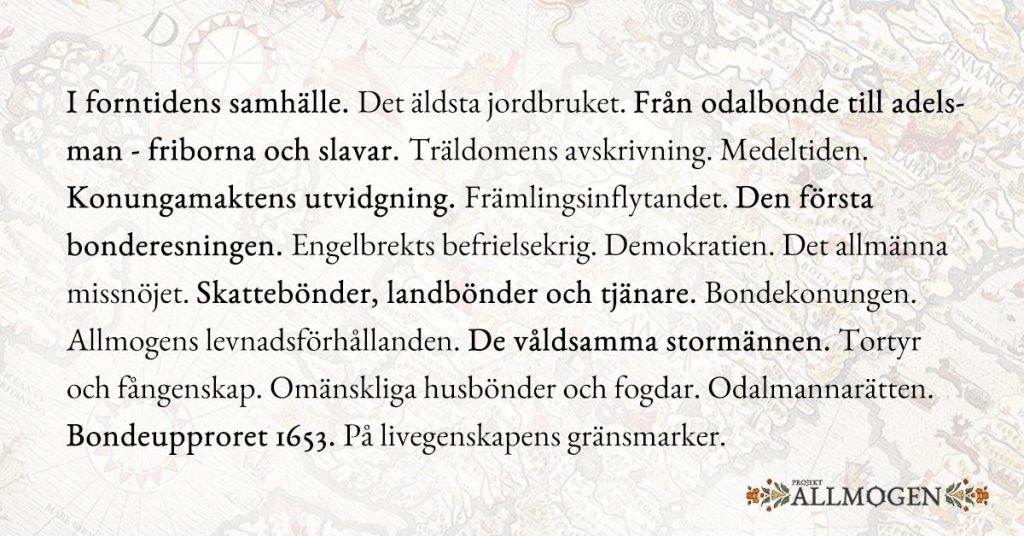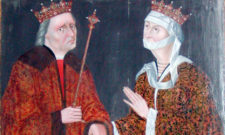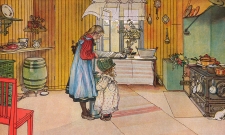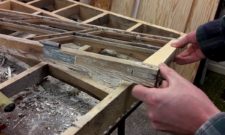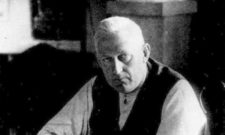One of the few attempts to depict the many rebellions of the Swedish common people against the authorities.
Download e-book:
.pdfIf you appreciate this book and would like to help make it available to more people for free, please send a donation to 123 223 34 27
The Freedom Struggles of the Swedish Allmog, by Alfred Kämpe, is a rare three-volume work that Vilhelm Moberg valued highly, and one of the few attempts to describe the many rebellions of the Swedish allmog against the authorities.
The first volume by The struggle for freedom of the Swedish Ommogens is based on ancient times where you can read about the Nordic slaves, the free farmers as "the slave of none and the master of none", the medieval extension of kingship and the popular uprisings of that time.
Among other things, you can read about Engelbrekt Engelbrektsson and Nils Dacke. Kristian Tyrann and the tyrant Gustav Vasa. Taxes, taxes and more taxes. Inhuman peasants and bailiffs. Centuries of peasant rebellion and a struggle for justice and a decent existence. Mint and state abuses. Serfdom and torture. Tax and saviour farmers. Living conditions and customs. Illegal day jobspoverty and misery.
Vilhelm Moberg on the work
The actual basis for Zetterholm's novel [We meet at Rynge] seems to be mainly Alfred Kämpe's great work Den svenska allmogens frihetsstrider, unfortunately overlooked and now forgotten. I read it in a lending library when it came out, in 1918. For years now I have been asking in vain for Kämpe's remarkable work in antiquarian bookshops. It has long deserved a new edition.
Preface of the book
It should perhaps be stated at the outset, so that no misunderstanding arises as to the title and meaning of the work, that Sweden's allmoge in the laws until the 17th century is the name of the entire population of the kingdom, with the exception of the nobility. It is thus understood to mean the entire congregation, i.e. the rural population, without class distinctions or differences in employment. Nowadays one would like to include within these limits only the peasants, who, according to this view, would thus form the country's common people, but this view is far from correct, from both a linguistic and a social point of view, and since in the following work it is intended to include all classes of the common people - with a preference even for the servants - I have considered myself obliged to take up the original and broader concept, which also includes the common people's professionals and soldiers, etc., groups.
Now I would also like to announce that the present presentation, which reaches up to the beginning of the Age of Liberty and constitutes only the first part of three, very incompletely clarifies the social living conditions and struggles of the common people from the earliest times up to the said time.However, much work has been spent on the collection of these widely scattered data, printed and unprinted, and in many cases they have been very incomplete and contradictory to each other. Therefore, mistakes could not have been avoided. But I hope, nevertheless, that the reader, taking this into account, can form a somewhat tangible picture of the struggle and living conditions of the common people during past centuries.
As to the form itself, in documents cited from older times and reproduced in whole or in part, the spelling has been corrected to be more in accordance with modern usage (the content being the essential point here), so that no difficulty may arise in reading them.
At the same time, I would like to express my gratitude to the officials of the Royal Library and the National Archives, who have in many ways assisted me with advice and information, especially concerning the following parts, as well as to the author. H. F. Spak, who has read the manuscript, and in many ways shown great interest in it.
Stockholm in Sept 1918.
The author
Subscribe to YouTube:
If you appreciate Allmogens independent work to portray our fine Swedish history and Nordic culture, you are welcome to buy something nice in the shop or support us with a voluntary donation. Thank you in advance!
Support Allmogens via Swish: 123 258 97 29
Support Allmogens by becoming a member
Support Allmogens in your will
